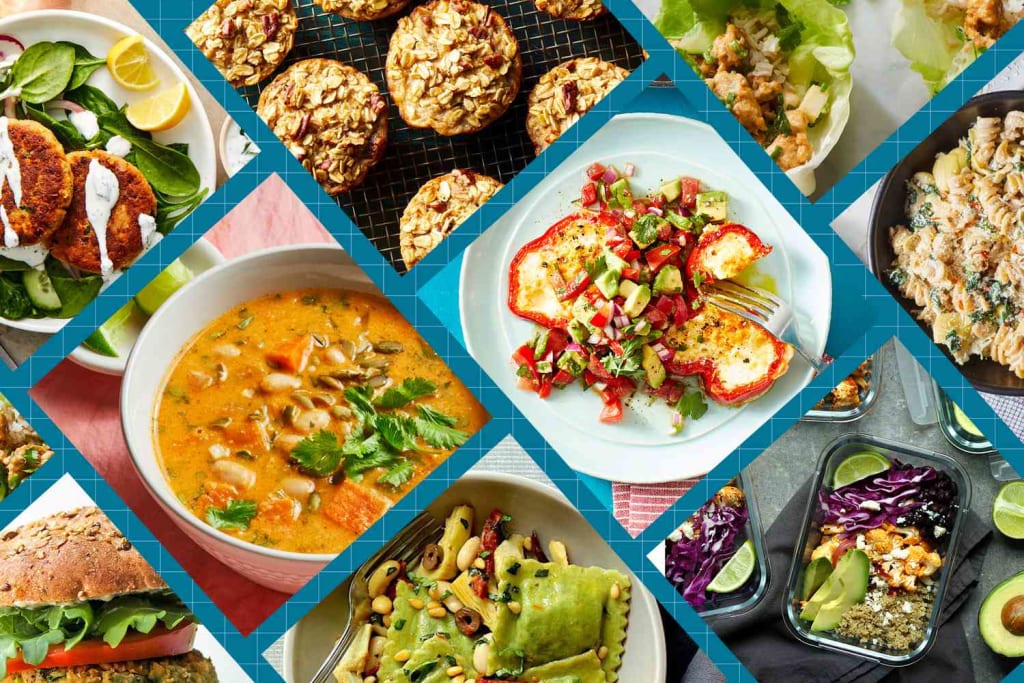Mastering the Art of Cooking
Creating Healthy and Delicious Meal Plans

Cooking is an art that brings together flavors, aromas, and textures to create delectable dishes. However, cooking is not just about satisfying our taste buds; it is also an opportunity to nourish our bodies with healthy and balanced meals. In this article, we will explore the importance of meal planning and provide valuable insights into creating a well-rounded meal plan for a 1600-calorie daily intake. By incorporating a variety of nutrients and flavors into your meals, you can transform cooking into a delightful and health-conscious experience.
1. The Benefits of Meal Planning (250 words)
Meal planning offers numerous advantages, making it an essential practice for anyone seeking to maintain a healthy lifestyle. Firstly, it promotes better nutrition by allowing you to carefully choose ingredients, balance macronutrients, and control portion sizes. Additionally, meal planning saves time and money by reducing food waste and preventing impulsive purchases. It also eliminates the stress of last-minute meal decisions, as you will have a clear plan to follow. By preparing meals in advance, you can avoid relying on unhealthy fast food options and enjoy the convenience of home-cooked meals.
2. Determining Caloric Needs (200 words)
Before diving into meal planning, it is crucial to determine your daily caloric needs. A 1600-calorie meal plan is generally suitable for individuals aiming for weight loss or maintenance. However, it is essential to consult a healthcare professional or nutritionist for personalized advice based on factors such as age, sex, weight, height, activity level, and any underlying health conditions. Once you have established your target caloric intake, you can proceed to design a meal plan that meets your nutritional requirements.
3. Building a Balanced Meal Plan (400 words)
Creating a balanced meal plan involves incorporating a variety of nutrient-dense foods from different food groups. Let's explore the key components to consider:
a. Protein: Include lean sources of protein such as chicken breast, fish, tofu, lentils, and Greek yogurt. These foods help repair and build tissues, support a healthy metabolism, and keep you feeling satisfied.
b. Whole Grains: Opt for whole grains like quinoa, brown rice, whole wheat bread, and oats. They provide essential fiber, vitamins, and minerals, promoting digestive health and providing sustained energy throughout the day.
c. Fruits and Vegetables: Fill your plate with a colorful assortment of fruits and vegetables to ensure an abundance of vitamins, minerals, and antioxidants. Aim for a variety of options to maximize nutrient intake.
d. Healthy Fats: Incorporate sources of healthy fats, such as avocado, nuts, seeds, and olive oil. These fats are crucial for brain health, hormone regulation, and overall well-being.
e. Dairy or Dairy Alternatives: If you consume dairy, choose low-fat options like skim milk or Greek yogurt. Alternatively, consider plant-based alternatives like almond milk or soy yogurt.
4. Meal Preparation and Cooking Tips (400 words)
Efficient meal preparation is the key to maintaining a consistent and enjoyable meal plan. Consider the following tips:
a. Batch Cooking: Prepare larger quantities of certain dishes, such as soups, stews, or roasted vegetables, to have leftovers for future meals. This saves time and ensures a readily available healthy option.
b. Prepping Ingredients: Chop and store vegetables, portion out snacks, and marinate proteins in advance. This step streamlines the cooking process, making it easier to whip up meals during busy weekdays.
c. Spice It Up: Experiment with herbs, spices, and seasonings to enhance the flavors of your dishes without adding excessive salt or unhealthy condiments. This will keep your meals exciting and satisfying.
d. Try New Recipes
: Keep the excitement alive by exploring new recipes regularly. This helps expand your culinary skills and introduces variety into your meal plan.
Conclusion (200 words)
Cooking and meal planning are invaluable tools for achieving a healthy and balanced diet. By carefully selecting ingredients, planning your meals in advance, and experimenting with flavors, you can transform your cooking experience into a creative and nourishing endeavor. Remember to consult professionals to determine your specific nutritional needs and personalize your meal plan accordingly. Embrace the art of cooking and relish the rewards of enjoying homemade meals that are both delicious and conducive to your overall well-being. Happy cooking!





Comments
There are no comments for this story
Be the first to respond and start the conversation.